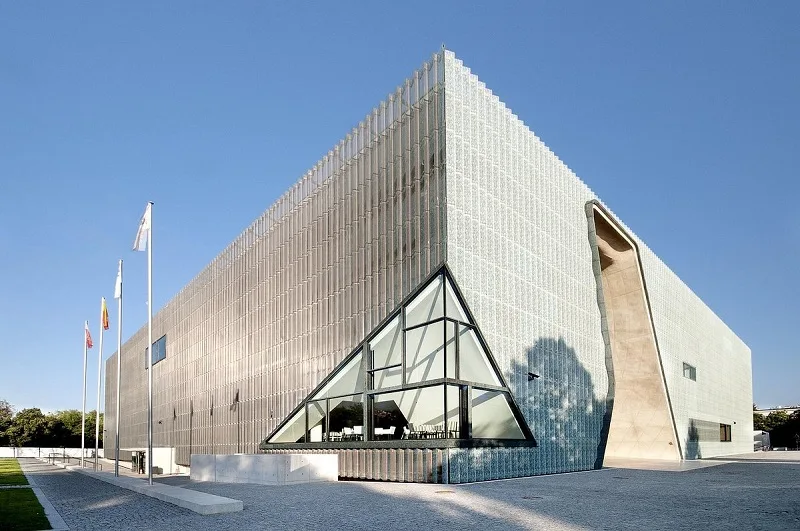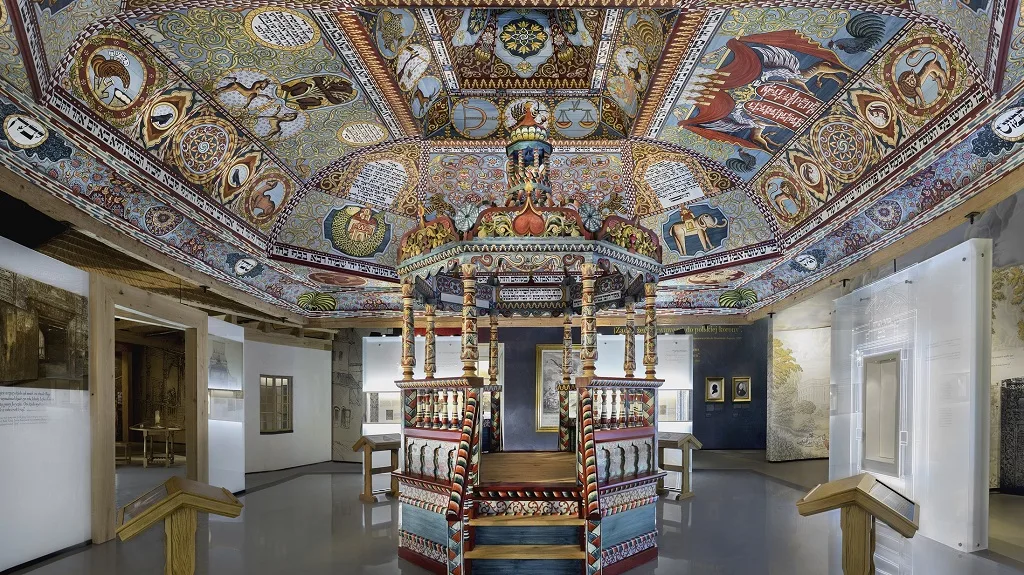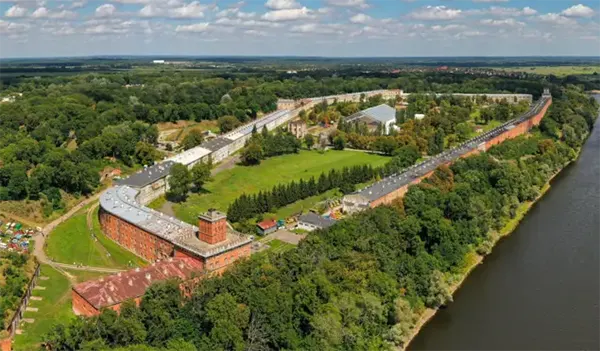
Explore Polish Jewish Heritage at the POLIN Museum
Poland, a country with a rich and complex history, is home to the POLIN Museum of the History of Polish Jews, an institution dedicated to preserving and presenting the thousand-year history of Polish Jews. Situated in Warsaw, the museum stands on the site of the former Warsaw Ghetto, offering a powerful and poignant reminder of the past while celebrating Jewish culture and heritage.
Discovering the Heart of POLIN Museum
The POLIN Museum is not just a building but a gateway to understanding the intertwined histories of Poland and its Jewish community. Its exhibitions are divided into eight galleries, each representing a different era, from the early Middle Ages to contemporary times. Visitors are guided through a narrative that reveals the cultural, social, and economic contributions of Jews to Polish society, as well as the tragedies they endured.
Among the key highlights is the replica of a 17th-century wooden synagogue, showcasing the artistry and craftsmanship of Jewish communities. The museum also employs multimedia installations, interactive exhibits, and personal testimonies to bring history to life, making it a compelling experience for all ages.
The Architecture: A Symbolic Design
The architectural design of the POLIN Museum is a masterpiece in itself, symbolizing the tumultuous journey of the Jewish people. Designed by the Finnish architect Rainer Mahlamäki, the building features a glass façade that represents transparency and openness, inviting visitors to look deeper into the stories within. The interior is marked by a dramatic chasm that splits the building, symbolizing the rupture caused by the Holocaust, yet it is also a passage, signifying hope and continuity.
The building’s design has received numerous accolades, including the prestigious Museum of the Year Award in 2016, highlighting its impact and significance in contemporary museum architecture.
Educational and Cultural Initiatives
POLIN Museum is more than a historical repository; it serves as a vibrant center for education and culture. The museum offers a range of programs, including workshops, lectures, and cultural events, aimed at fostering dialogue and understanding between different communities. Educational programs are tailored to various age groups, ensuring that both young and old can engage with the content in a meaningful way.
Furthermore, the museum collaborates with academic institutions and cultural organizations worldwide, contributing to scholarly research and promoting Jewish heritage. It acts as a bridge between past and present, ensuring that the lessons of history are not forgotten.
The museum’s library and resource center provide extensive materials for those interested in further exploring Jewish history, making it a valuable resource for researchers, students, and anyone with a keen interest in the past.

Visitor Experience: A Journey Through Time
A visit to the POLIN Museum is a deeply immersive experience. As visitors walk through the galleries, they are transported back in time, experiencing the rich tapestry of Jewish life in Poland. The museum’s use of modern technology enhances this experience, with virtual reality installations and interactive displays that engage the senses and the mind.
The museum also offers guided tours, audio guides, and educational materials in multiple languages, ensuring that it is accessible to a global audience. The café and gift shop provide a taste of Jewish cuisine and offer unique souvenirs, making the visit memorable on many levels.
From school groups to individual travelers, the museum caters to a diverse audience, providing a space for reflection, education, and cultural appreciation.
One of the most poignant areas of the museum is the Memory Gallery, dedicated to the remembrance of the Holocaust victims. It serves as a place for reflection and contemplation, a stark reminder of the atrocities committed, and a call for vigilance against intolerance and hatred in today’s world.
Planning Your Visit to the POLIN Museum
The POLIN Museum is located in the heart of Warsaw, making it easily accessible to visitors. The museum is open throughout the week, with extended hours on weekends to accommodate the high volume of visitors. Tickets can be purchased online or at the museum’s entrance, with discounts available for students, seniors, and groups.
The museum’s official website offers detailed information on current exhibitions, events, and visitor services, including accessibility options for individuals with disabilities. Whether you are a history enthusiast, a scholar, or simply curious about the Jewish heritage, the POLIN Museum provides an enriching and enlightening experience.
To fully appreciate the museum’s offerings, it is recommended to allocate at least a few hours for the visit. Guided tours are available and highly recommended for those wishing to gain deeper insights into the exhibits and the history they represent.
Popular articles
-
 Casino Travel Route Across Poland: How to Plan a Trip for Any Budget
Casino Travel Route Across Poland: How to Plan a Trip for Any BudgetPoland offers a regulated and geographically compact casino scene, which …
-
 Twierdza Modlin (Nowy Dwór Mazowiecki): how to plan a visit to the lar...
Twierdza Modlin (Nowy Dwór Mazowiecki): how to plan a visit to the lar...Twierdza Modlin (Modlin Fortress) lies north of Warsaw in Nowy …
-
 Niedzica Castle (Zamek w Niedzicy): The Inca Treasure Legend and the D...
Niedzica Castle (Zamek w Niedzicy): The Inca Treasure Legend and the D...Perched above Lake Czorsztyn in southern Poland, Niedzica Castle (also …
